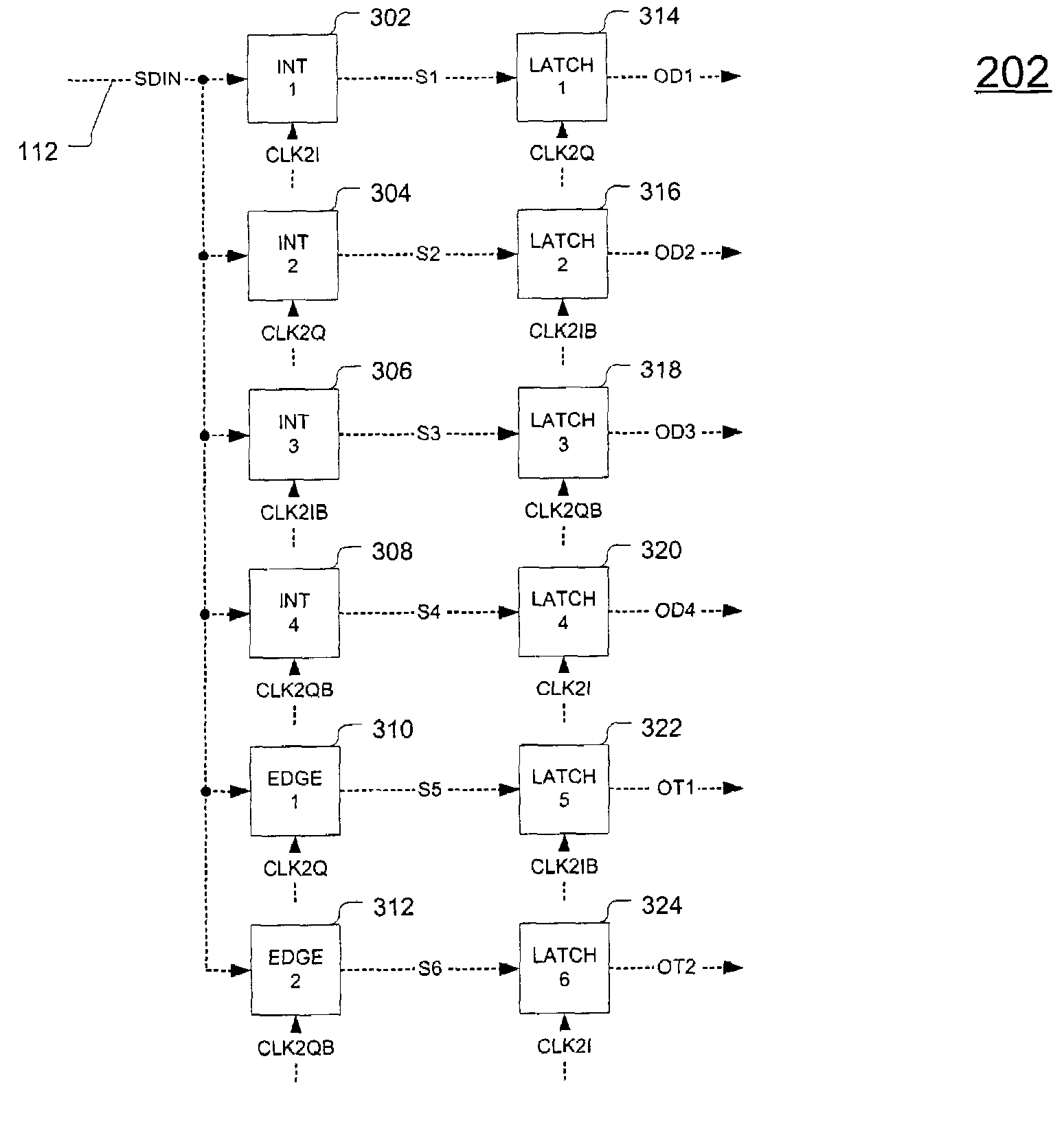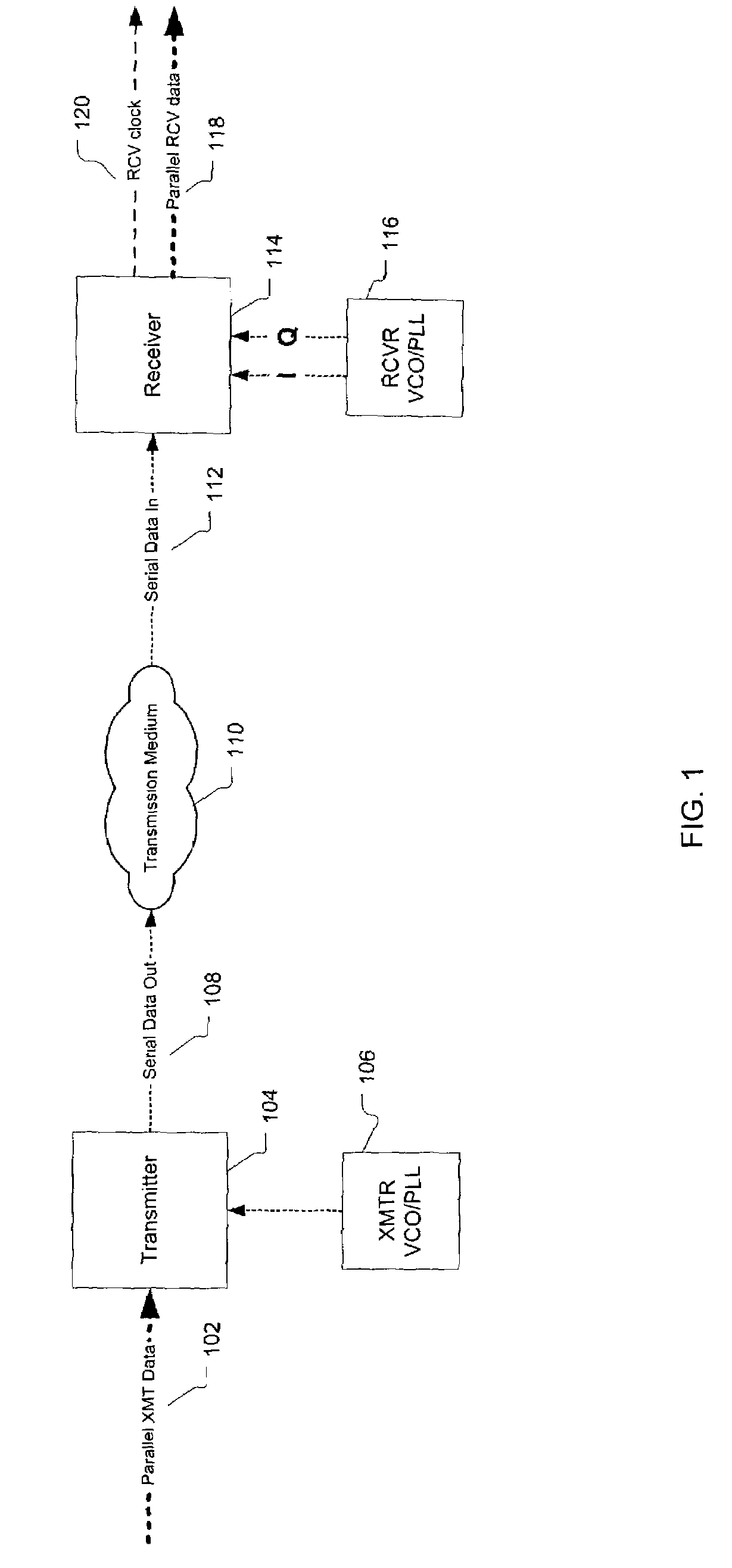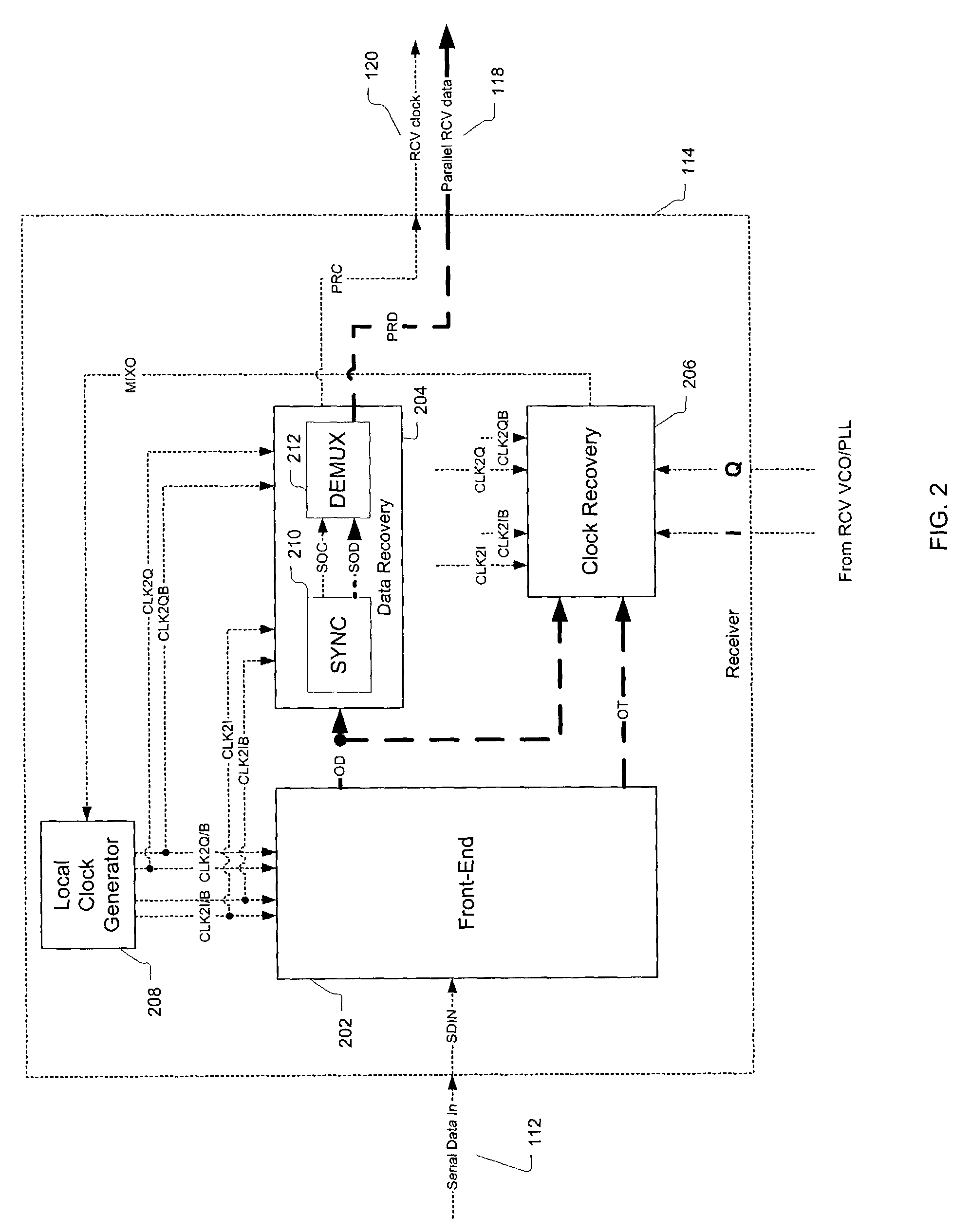Clock and data recovery with extended integration cycles
a clock and data recovery technology, applied in the field of clock and data recovery systems, can solve the problems of extreme clock skew sensitivity of the cdr system, capture of erroneous data, etc., and achieve the effect of optimizing the clock recovery circuitry, maximizing the signal-to-noise ratio, and minimizing the possibility of latching erroneous data
- Summary
- Abstract
- Description
- Claims
- Application Information
AI Technical Summary
Benefits of technology
Problems solved by technology
Method used
Image
Examples
Embodiment Construction
[0016]Reference herein to “one embodiment” or “an embodiment” means that a particular feature, structure, or characteristic described in connection with the embodiment can be included in at least one embodiment of the invention. The appearances of the phrase “in one embodiment” in various places in the specification are not necessarily all referring to the same embodiment, nor are separate or alternative embodiments mutually exclusive of other embodiments.
[0017]Note that, throughout this text and in the figures, a signal name with lowercase “p” or “n” appended to it, is used to indicate the “positive” or “negative” element, respectively, of a differential pair. Similarly, an uppercase “B” for “bar” appended to a signal name (potentially prior to an appended lowercase “p” or “n”) is used to indicate the inverted copy of that signal. Finally, an uppercase “Q” appended to a signal name indicates that it is the quadrature-phase (i.e., 90-degree) shifted version of that signal. For examp...
PUM
 Login to View More
Login to View More Abstract
Description
Claims
Application Information
 Login to View More
Login to View More - R&D
- Intellectual Property
- Life Sciences
- Materials
- Tech Scout
- Unparalleled Data Quality
- Higher Quality Content
- 60% Fewer Hallucinations
Browse by: Latest US Patents, China's latest patents, Technical Efficacy Thesaurus, Application Domain, Technology Topic, Popular Technical Reports.
© 2025 PatSnap. All rights reserved.Legal|Privacy policy|Modern Slavery Act Transparency Statement|Sitemap|About US| Contact US: help@patsnap.com



